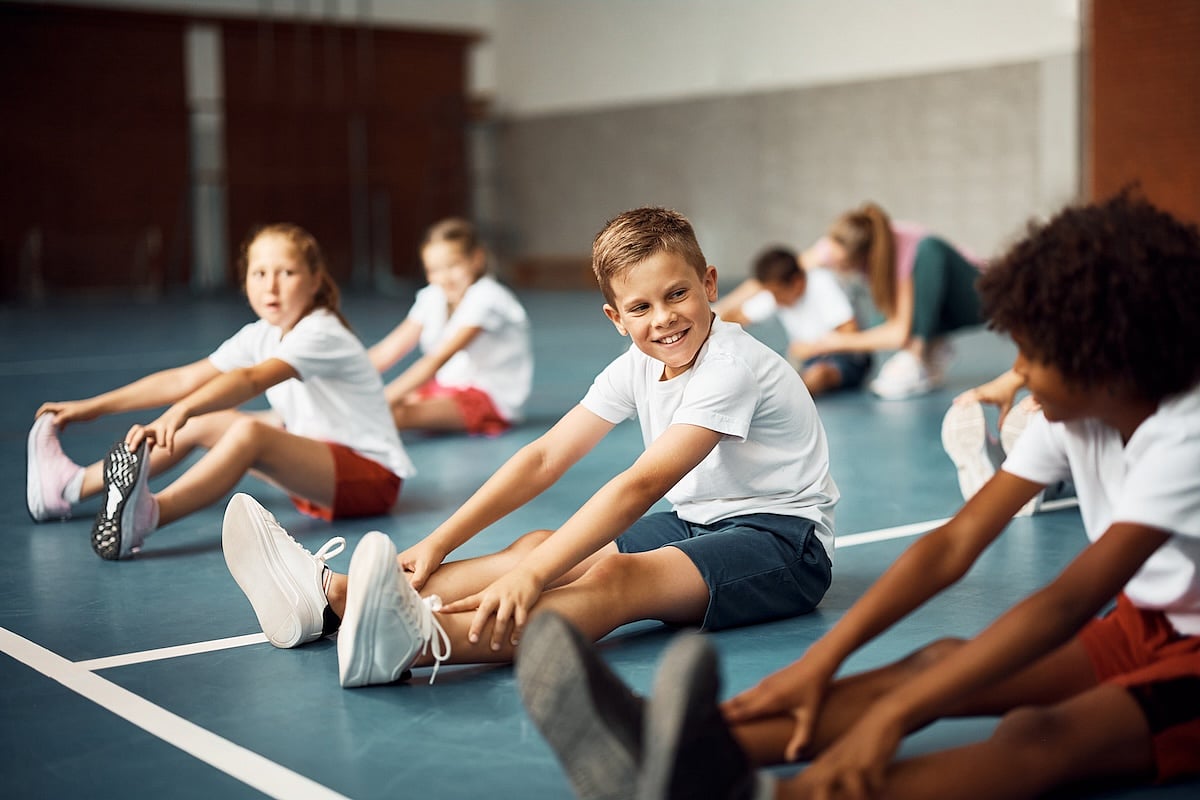Get Healthy!

- Dennis Thompson
- Posted August 21, 2024
PE Class: It Can Boost a Child's Body and Mind
A quality physical education program involves more than just getting kids to move for a set amount of time during the school day, experts say.
PE classes can teach lessons not found in any other classroom, Erika Mundt, a PE teacher at Iowa West City High School in Iowa.
“A successful PE program can literally change the way a school functions as a whole,” said Mundt, who was the Society of Health and Physical Educators (SHAPE) America High School PE Teacher of the Year in 2018.
“PE involves cooperative learning, acceptance of yourself and others, learning to try new things no matter how good you are, communication, and problem-solving,” Mundt added in a news release from the National Education Association.
That’s not to downplay the need for exercise. Physical activity during the school day is essential for student mental health, Mundt said, particularly following the pandemic.
“I just hope that school districts and administrators take into consideration PE when they are trying to catch up with the pandemic and realizing that cutting PE and cutting activity time isn’t the way to get students to learn more,” Mundt said. “PE is an efficient way to help kids learn more.”
Kids learn more and stress less when they take PE, said Cara Grant, president-elect of SHAPE America.
“As young as early elementary school, students discover how physical activity helps them feel better,” said Grant, who is PreK-12 curriculum supervisor for health, PE and adapted PE for Montgomery County Public Schools in Maryland.
PE classes can provide a chance to check in with kids’ emotional health, experts said.
For example, one sample PE lesson for elementary students includes asking the kids to select an emoji that represents how they feel at the beginning and end of class.
Often, kids who selected a sad or tired emoji at the beginning chose a happier or more excited one at the end of class, experts said.
“In younger grades, we ask students, ‘Why are we moving? How does that help us when we don’t feel great? When you don’t feel great but go play at recess, you feel better. How does that apply to why we move?”’ Grant said.
And as kids get older, PE classes can become more sophisticated, helping kids learn more about their physical abilities.
Good PE programs all should instill a feeling of confidence and competence in movement, rather than just teaching specific athletic skills, experts said.
“We want students to challenge themselves, and learn about what their bodies are capable of no matter their ability or background,” Grant said. “We want them to explore movement, to feel more successful over time and know that they are growing.”
And this benefits mental health because it builds self-confidence, Grant added.
Quality PE programs also promote positive personal and social behaviors, experts said. Students learn how to communicate and resolve conflict -- for example, by taking turns or agreeing on the rules of a game.
“I get to teach students valuable skills to stay healthy for lifelong activity,” said Jim Hambel, an elementary school PE teacher in the Bronx, N.Y.
In 2022, Hambel’s school launched a program for fifth graders in which they built their own bikes, then learned how to ride safely on the road.
The program thus taught children some mechanical ability as well as bike safety, and opened the door to more of them riding their bike to school, Hambel said.
“PE helps students understand by using critical thinking. PE is great at that because we are teaching them how to work with others, be safe and understand the mechanics of skills -- the why, the what and the how,” Hambel said.
SOURCE: National Education Association, news release, Aug. 28, 2024




